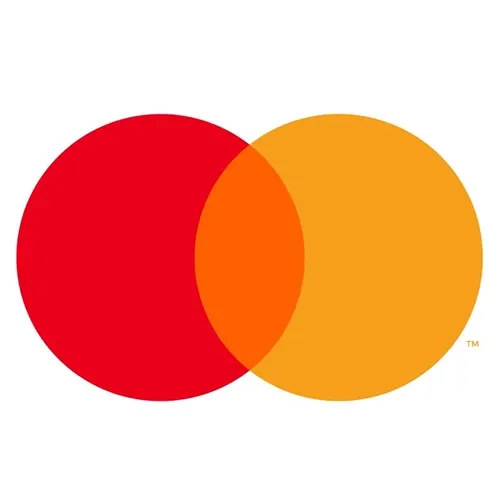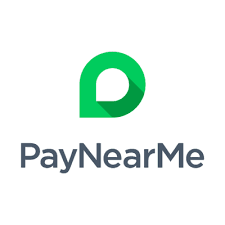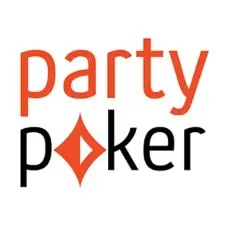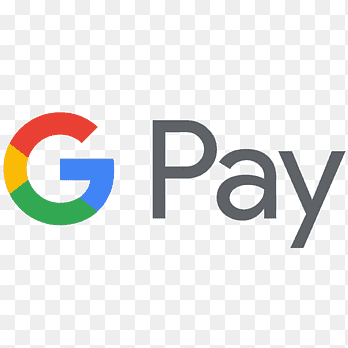How to Play Texas Hold'em: Best Strategies
People looking to play poker these days are typically looking for a Texas Hold'em game, as its popularity has soared in the poker world for decades. It's long been the form of poker played in the Main Event at the World Series of Poker.
The worldwide interest in Texas Hold 'em exploded when that event started to get regular TV time in the early 2000s at the same time as online poker was taking off. For many of those early online poker years, most poker games offered on those sites were forms of Texas Hold'em, as it's a game that's easy to learn but nearly impossible to master.
Texas Hold'em is still the most popular poker game in the world, played in brick-and-mortar casinos and online poker and gaming sites everywhere. It's still a game that welcomes in new players daily though, and for those that are still new to Texas Hold'em, this piece is for you. It will touch on everything someone new to the game will need to know.
From learning about Texas Hold'em rules and how they differ from other poker rules, the dynamics of an initial forced bet - known as a blind, how community cards and hole cards work, to how to use the dealer position to your advantage, this Texas Hold'em primer covers it all.
🏆 Best Real Money Online Poker Sites For Texas Hold'em

- Huge Tournament Selection
- Games at All Stakes
- Multi-State Player Pool









- Variety of Games and Tournaments
- Loyalty Program Through BetMGM Rewards
- Shared Player Pool with Borgata and PartyPoker











Promo Code

- Cash Games and Tournaments 24/7
- Players Can Earn Cashback Daily
- Shared Player Pool with BetMGM and PartyPoker











Promo Code

- Daily Tournament Schedule
- Large Selection of Poker Variants
- Shared Player Pool with BetMGM and Borgata











Promo Code

- Head-to-Head Poker
- Several High Stakes Tournaments
- Ring Games + Easy Cashouts




🎓 How to Play Texas Hold'em Poker
A Texas Hold'em hand begins with the two players directly to the left of the dealer button posting a forced bet known as the small blind and big blind respectively. The dollar amounts of the small and big blind are predetermined by the stakes for the table, with the big blind amount always being double the small blind.
It's important to note that the dealer position rotates clockwise every hand, and table positioning - where you currently sit at the table relative to the dealer position - is a critical part of the overall poker strategy for this game. It also rotates to ensure every player is forced to post a small blind and a big blind once every orbit of the dealer button on the table.
Once the blinds have been posted, two hole cards are dealt to every player, and a round of betting begins with the player directly to the left of the big blind. This player has the option to call the big blind amount, raise the big blind amount, or fold their hole cards. All of the subsequent players have the same options when it is their turn at the table, with all bets needing to be called before the first three community cards - known as the Flop - are dealt face-up.
The players remaining in the hand then see the flop cards, and go through another round of betting, with the small blind or the next remaining player to the left of the dealer acting first. All bets must be called before the fourth community card (the Turn) is revealed, with players going through another round of betting before "fifth street" (the River) is revealed as the final card all players can use in their hand.
Once that fifth card has been revealed on the table, a fourth betting round ensues, with the strength of a player's hand now completely determined. Bluffing at the pot may be the only option for some players who missed making their hand at this point, but once all bets are called at this stage, the hole cards of all remaining players are revealed to determine the winner.
Let's take a look at these specific betting rounds in a bit more detail:
😯 Preflop
Preflop action in a Texas hold'em game consists of a forced bet known as the blind posted in the two seats to the immediate left of the dealer button. These are known as the small blind and big blind respectively, and they are required to make a forced bet of the laid out table stakes. Each hand these positions rotate clockwise, so every player at the table takes their turn at posting a small blind and a big blind.
Hole cards are then dealt to all the players, and a preflop betting round begins with the player directly to the left of the big blind. The player can call the big blind amount, fold their hand, or raise the bet, with each player to the left having those same options based on what the player(s) before them have done.
Should everyone at the table fold, the big blind wins the small blind and the positions shift over for the next hand. Otherwise, once all players have called whatever bets and raises there were during this preflop betting round then move on to see the flop.
🩴 The Flop
After the top card on the deck is discarded as a burn card, "the flop" is where the first three community cards are dealt face-up for all players to consider using to make their best five-card poker hand.
Knowing that the community cards can be used by everyone creates an interesting betting dynamic after the flop, as so many different hand ranks can be made all at once with these initial three community cards. It makes understanding hand strengths and values very important for players to continue betting in the hand.
Betting action for this betting round begins with the player in the small blind position (if they remain), followed by the big blind or whoever is next closest to the left of the dealer button. All bets must be called to see the fourth community card, otherwise, the last player who hasn't folded their hole cards wins the pot.
⤴️ The Turn
After a second burn card is discarded, "the turn" is the fourth community card dealt, also known as "fourth street" and it kicks off another betting round with the remaining active players, starting to the left of the dealer button.
🌊 The River
A third burn card is tossed aside before the final community card is dealt, known as "the river." The remaining players go through the final betting round of the hand after the river before revealing their hole cards in the showdown.
⚔️ Showdown
When betting after the fifth and final card finishes, the remaining players in the hand showdown their hand by revealing their hole cards and determining who has the winning hand. The pot is then awarded to the winner(s), and split accordingly should there be a tie.
🃏 Other Poker Variations
Texas Hold'em has been the most popular variation of poker for the past few decades, but it wasn't always that way. Other forms of the card game like different draw poker variations dominated the action in poker rooms for years before that. Here's a look at how to play poker in some of other of the variations of the game:
| ♠️ Poker Variation | 📜 Description |
|---|---|
| 👉 Omaha Poker | Omaha is another highly popular poker game these days, and it does share a lot of similarities with Texas Hold'em. Five community cards are dealt face-up on a flop, turn, and river just as in Texas Hold'em, and betting occurs with a preflop betting round, and a betting round after the flop, turn, and river as well. However, the main difference between Texas Hold'em and Omaha is that players are dealt four hole cards in Omaha, and MUST use two, and only two of their hole cards with three of the community cards to create the best five-card poker hand they can. |
| 👉 Seven-Card Stud | Seven-card stud is where the dealer deals up to seven cards to each player as there are no community cards to use like in Texas Hold'em or Omaha. Instead, players are initially dealt two cards face down and one card face up before proceeding with the first betting round. A second card is dealt face-up to the remaining players before a second betting round of action takes place. This process is done two more times - the remaining players are deal |
| 👉 Seven-Card Stud Eight or Better | A typical seven-card stud game, but the pot is split in two, with half being awarded to the highest hand (per usual), and the other half awarded to a low hand of certain qualifications. Poker hands only qualify to win the low portion of the pot if five unpaired cards are all 8 or lower numerically. If no hand qualifies for the low pot, the winner of the highest hand takes the entire pot. |
| 👉 Razz | A seven-card poker game that shares many similarities with Seven-card Stud with how cards and dealt and betting rounds take place. The main difference is that hand rankings are inverted where the object is to make the best "low" hand to win the pot. Straights and flushes are not incorporated, and aces always play as low, making the best possible Razz hand 5, 4, 3, 2, A. |
| 👉 H.O.R.S.E | A mixed-game version of poker that sees five different variations of poker played throughout the contest. Hold'em (H), Omaha Hi-Lo (O), Razz (R), Seven-Card Stud (S), and Seven-Card Stud Eight or Better (E) are the five poker game variations used in H.O.R.S.E, with each orbit of the dealer button changing the variant that's used. |
| 👉 Chinese Poker | Thirteen cards are dealt to each player in this 2-4-player game, with each player required to make three different poker hands with increasing rank from those 13 cards. Three cards are used to make the lowest-ranked hand, with a five-card hand being made two times out of the remaining 10 cards. Players then show down their respective three hands with three wins ultimately determined; the highest three-card hand, the highest of the first five-card hand, and the highest of the second five-card hand. |
You can play the newest Texas Hold'em variations with our Hollywood Casino promo code!
💰 Placing Bets in Texas Hold'em
All hands in Texas Hold'em start with a forced bet known as a blind. There is the small blind and big blind, and the size of these blinds is determined by the table stakes. Texas Hold'em tables are always listed by the stake size for the blinds required there, such as $0.25/$0.50, $1/$2, or $10/$20 for example. The first number is what the small blind is for each hand at that table, with the second number being the stake needed to cover the big blind. The big blind is always double what the small blind is.
The players who are forced to post the small blind and big blind each hand rotate clockwise as the dealer button does. The small blind is always posted by the player directly to the left of the dealer position, while the big blind is directly to the left of the small blind. Hole cards are then dealt to all the players at the table with the preflop betting round beginning with the player directly to the left of the big blind. The betting action for all subsequent betting rounds begins with the player in the small blind position or the remaining active player that's to the left of the dealer button.
Bets are made or called based on the betting structure of the variation of Texas Hold'em that's being played (Limit, Pot-Limit, or No-Limit) and the minimum bet for each round must be at least the size of the small blind.
🔢 Fixed-Limit Games
Also known as "Limit Poker", fixed-limit Texas Hold'em games are ones where the betting amount of all bets and raises during a betting round is a fixed amount. The amount of times a bet can be raised per betting round is also capped. The fixed betting amount is equal to what the small blind and big blind structures are for the game, with the small blind amount being used for the preflop betting round and post-flop betting round, and the big blind amount being used for post-turn and final round of betting.
For example, a $2/$4 Limit Texas Hold'em Game would have a small blind of $2 and a big blind of $4 initially put into the pot before the dealer deals the two hold cards to each player. A first betting round then takes place where players can only bet $2, and others can only raise the bet(s) by $2 a maximum of four times. Once that four-bet limit is reached, subsequent players who want to remain in the hand are forced to call.
Bet amounts for the post-flop betting round are capped at $2 and four times again, but the betting amount switches to the big blind amount ($4) for the betting rounds after the turn and river. The frequency of raises is generally capped at four times when the betting occurs during these betting rounds, but house rules may stipulate that the raising cap could be lifted if the betting round started with only two players (heads up).
🍯 Pot-Limit Games
A pot-limit Texas Hold'em game uses a betting structure where all players are restricted to a max bet of the current size of the pot. This differs from limit poker in that you can bet and raise more than 1x of the small blind or big blind amount, but you are still limited to a bet only as big as the pot currently is at that moment plus the previous bet amount during the round of betting.
Now as the betting rounds go on and fourth street and fifth street are dealt, the size of the pot can get quite large if there were a few pot-sized bets earlier on, and this is where Pot-Limit games start to resemble the no-limit structure of Texas Hold'em that is most commonly played today.
💸 No-Limit Games
No-limit Texas Hold'em poker games have a betting structure with no limits or restrictions on them, other than the fact that the minimum bet each round must be at least the size of the small blind. Players playing no-limit Texas Hold'em can shove all of their chips into the pot at any moment, and if they are called by just one opponent, the rest of the community cards are dealt face-up to determine the winning hand.
If more than one player calls an "all-in" bet, that pot is then put aside, and the remaining players continue to play out the betting rounds as normal in a separate side pot that only they compete for. Once the final betting round is complete, the hands are then revealed face up to see who's got the best five-card poker hand. If it's the original "all-in" bettor, he scoops up the original pot put aside, and the best hand from the remaining players takes the second side pot that was built after the first "all-in" bet was made.
If one of the players who called the original "all-in" wager and kept on with the regular betting rounds has the best five-card poker hand of any active player after the final round of betting, they scoop up the entire pot(s).
📈 How to Win at Texas Hold'em
Winning at Texas Hold'em is the ultimate goal for anyone who sits down to play the game, but there is not a singular poker strategy out there that determines success in a Texas Hold'em game. That doesn't mean there aren't basic guidelines that the most successful professional poker players who make their living playing Texas Hold'em employ, as most guidelines have some aspect of being aggressive in their betting structure. Forcing out opponents from the hand to win pots is a more consistent strategy to rely on than always trying to make the best five-card poker hand, and opponents don't have the opportunity to fold their hands if you aren't betting aggressively. Controlled aggression is the key.
There are many great resources out there in the poker world that discuss poker strategy as a whole for Texas Hold'em and some of the best ways to improve your game. Winning Texas Hold'em players are always learning and trying to figure out new ways to win at this game, so you must be adaptable to the current conditions at a poker table to consistently win. Sometimes controlled aggression will be the best way to go, other times it may be a more conservative approach against players who are loose with their chips/bets that get the job done.
If you want to consistently win at Texas Hold'em, don't ever shy away from a continual learning approach to the game.
📜 Texas Hold'em Hand Rankings
The hand rankings from weakest to strongest for Texas Hold em are as follows:
- High Card - Five unmatched cards where the highest card plays. Aces are considered the highest, followed by K, Q, J, 10, and so on.
- Pair - Two cards of the same rank. If multiple players hold the same rank of pair, the next highest card in the hand plays as the "kicker" to determine the winner. If multiple players are holding pairs of different ranks, the player with the higher ranking pair wins the pot (ie a pair of Kings beats a hand with a pair of Queens or lower).
- Two Pair - Two separate pairs make up four of the five holding cards. A hand featuring J, J, 7, 7, 4 is an example, with the pair(s) of Jacks and 7's playing with a 4-kicker. Should multiple players be holding two-pair hands, the highest-ranking top pair wins the hand. If the top pair of both players is identical, the higher ranking of the second pair decides the pot. If both pairs are identical, the fifth card in the hand plays as the kicker to decide the pot (a tie in the kicker results in a split pot).
- Three of a Kind - Three cards of the same rank. Hands like K, K, K, A, 10 and 7, 7, 7, J, 10 are examples.
- Straight - Five cards in any suit that are sequential. Holding 6, 7, 8, 9, 10 is an example of a straight
- Flush - Five cards in any sequence that are all of the same suit.
- Full House - Three cards of the same rank (three of a kind) with two more cards of the same rank (a pair).
- Four of a Kind - Four cards of the same rank numerically. A player holds all four Jacks for example.
- Straight Flush - Five cards in the same suit that are also in sequence. A straight flush can only be as high as King-high (9, 10, J, Q, K), as otherwise it's considered a Royal Flush.
- Royal Flush - The 10, J, Q, K, A in the same suit
💡 Texas Hold'em Strategies & Tips
Here are a few more strategies and tips to consider if consistent success playing Texas Hold'em is what you're looking for:
- Know your position relative to the dealer
- Know and understand the value of your hand
- Don't be afraid to bluff and represent hands the community cards suggest might be out there
- Don't be afraid to let go of a hand, or get bluffed, if the board kills the value of your hand/hole cards that were initially strong
- Understand your opponents and focus on their actions to spot exploitable holes in their game
- Be aggressive early in a hand with strong cards, you can't let worse hands see a cheap flop to possibly outdraw your strong hole cards
- Don't chase losses and action after suffering a bad beat or two on the river
🔐 Playing Responsibly
Playing responsibly every time you sit down to play poker can be a tough thing to adhere to, and thankfully all of the top online poker sites have plenty of resourceful material to help anyone concerned about their gambling habits getting out of control. Self-exclusion and limit-based tools (deposit, wagering, and time spent on site) are available and many online poker rooms for any poker player to use should responsible gaming become an issue for them, as it's critical to the health of a betting bankroll that a player bets within their means.
There are also plenty of great outside resources and responsible gambling programs and organizations that exist only to help anyone struggling with a gambling problem or potential gambling addiction. There are links below to some of these great organizations if playing responsibly when you play poker has become a big issue.
📋 Online Poker Resources
Confidence is key to be a successful Texas Hold'em player. Take advantage of the following poker guides to help boost your play:
Also, to learn more about online casinos, please refer to our addition casino education content below.
- Casino Gambling Information
- Casino Gambling Biases
- Gambler's Fallacy
- Are Online Casinos Rigged or Legit?
Online poker is currently legal in Nevada, Michigan, New Jersey, Pennsylvania, West Virginia, Connecticut, and Delaware. For more legal information regarding your state, take a look at our online casino legalization tracker.
And did you know that social poker is also an option through Clubs Poker, a social casino operating in over 35 US states?
